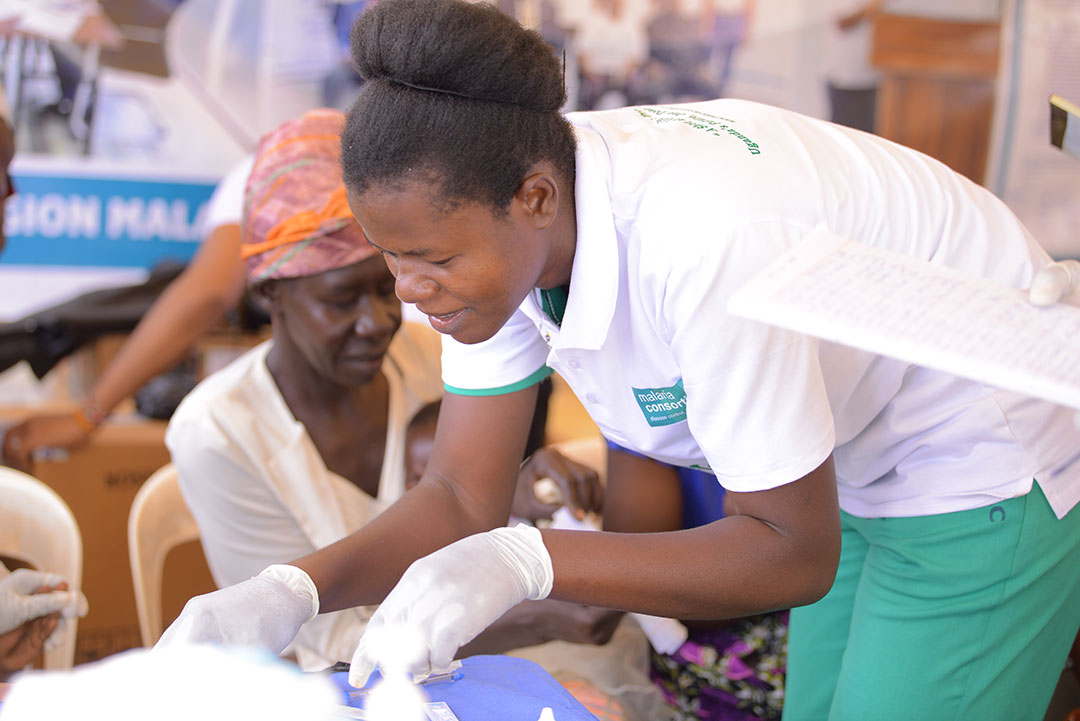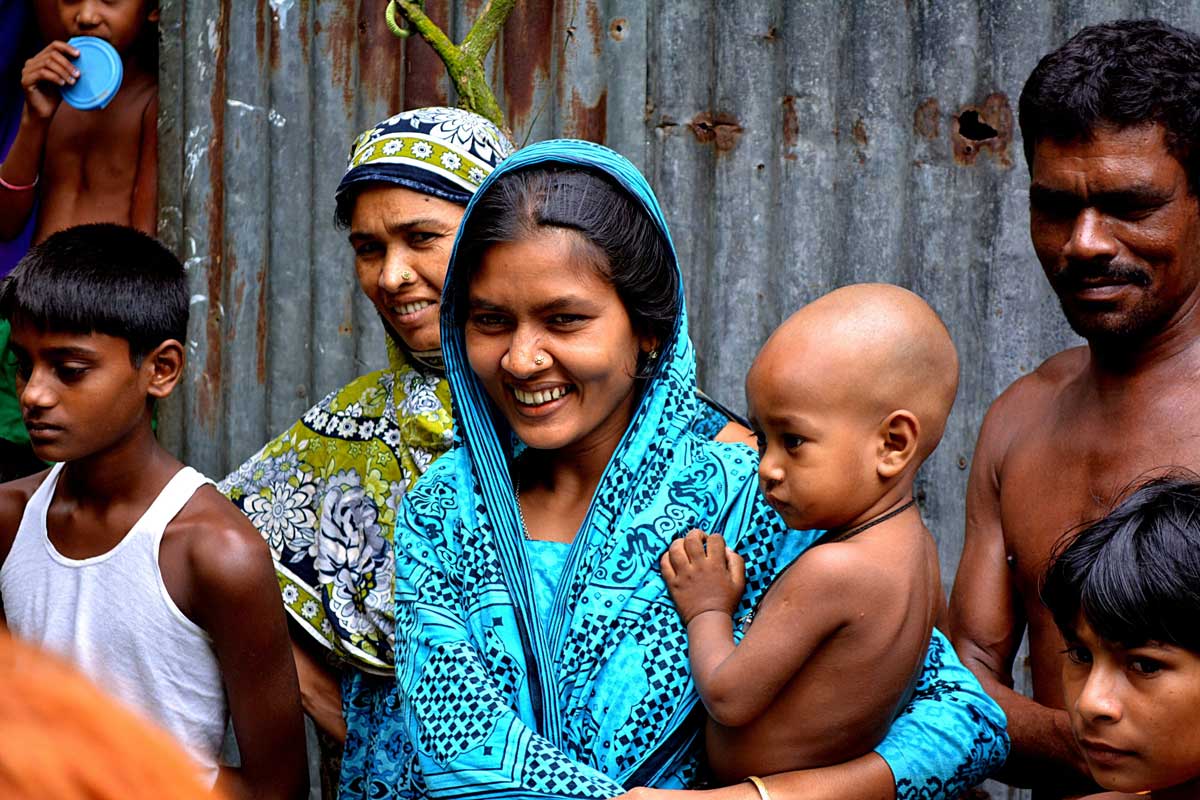Improving access to innovative medicines in Africa starts with clinical trials
Africa bears 25% of the global disease burden but lacks representation in research. Clinical trials held in Africa are key to improving access to medicine.
- 11 July 2025
- 5 min read
- by World Economic Forum

- Africa bears one-quarter of the global disease burden, but in 2023 only 1.1% of clinical trials carried out worldwide were hosted on the continent.
- Under-representation matters as clinical trials are a vital gateway to access, with implications also beyond Africa in terms of global health security.
- Developing innovative medicines tailored for an African setting could be transformative – but only if the continent is included from the outset.
The global health community has long called for innovation that delivers impact where it is needed most. Yet the structure of medical research remains deeply unbalanced.
While Africa bears 25% of the global disease burden, only 845 of the 76,331 clinical trials initiated globally in 2023 – just 1.1% – were hosted on the continent, according to the World Health Organization (WHO).
When it comes to pivotal late-stage trials, which are typically conducted on a large scale and a worldwide basis, Africa also gets left behind. The 2024 Access to Medicine Index found only 27.5% of late-stage R&D projects – 89 of a total of 324 – from 20 top pharmaceutical companies analysed included one or more African country.
This under-representation matters because clinical trials are a critical gateway to access. They shape where treatments are approved first, how quickly they become available and whether products are tested for safety and efficacy across diverse populations.
Why Africa needs to be included in clinical trials
The fact that most Africans do not have a chance to participate in medical studies has far-reaching implications not only for the quality and effectiveness of healthcare solutions deployed on the continent, but for global health security.
Management of specific diseases and the guidelines that are developed for treatment are based on the experience of clinical trials in the limited locations where they are run, guided by the expertise of practitioners and decision-makers involved in steering and ethics committees.
Trials also provide a vital database that informs global and local regulatory decisions, which determines where pharmaceutical companies prioritize product registration. When African countries are excluded, they miss out on these critical benefits, as well as the opportunity to build lasting research and regulatory capacity.
That is why it is so important that pharmaceutical companies commit to expanding their R&D footprint in Africa beyond the narrow range of infectious diseases that are typically associated with the continent to a much broader range of illnesses, including chronic conditions such as heart disease and cancer.
The missed opportunities are especially stark when it comes to high-burden diseases where Africans are on the frontline. Africa accounts for more than 80% of all cases of sickle cell disease, for example, yet access to emerging therapies is extremely limited due to minimal trial activity in the region.
Although sickle cell disease is one area where gene therapy has shown real potential, no gene therapy trials are under way for the condition across the continent. Similarly, modern long-acting injectables could dramatically improve treatment adherence and outcomes for a variety of diseases, but they are rarely trialled in Africa beyond those for HIV/AIDS.
Developing innovations that are tailored for an African setting could be transformative – but only if the continent is included from the outset. Integrating African sites earlier into clinical trial programmes is an essential first step for ensuring equitable access and stronger, more relevant health systems worldwide.
Pharmaceutical industry falling short on Africa
As sponsors and asset owners of so many clinical trials, the pharmaceutical industry has a vital role to play, but the data shows it is falling short.
The 2024 Access to Medicine Index found only 16 of 80 candidate medicines targeting priority diseases were being tested in African countries, even though many of them address diseases with high prevalence on the continent.
A few multinational pharmaceutical companies have shown that inclusive trial design is possible – including positive examples of early access and local data collection – but these cases remain the exception, not the rule.
Urgent action is required to prevent Africa’s exclusion become cemented in for decades to come – to the detriment of us all. As health threats grow more complex, with pandemics and antimicrobial resistance on the rise alongside climate change, building an inclusive research ecosystem is essential to prepare for what lies ahead.
Africa is building up strong clinical infrastructure
The good news is that Africa already has some strong foundations.
Clinical trial infrastructure, especially in infectious diseases such as HIV, tuberculosis, and malaria has been built up through partnerships with institutions like the Africa Centres for Disease Control and Prevention (Africa CDC), the European and Developing Countries Clinical Trials Partnership (EDCTP) and the Regional Centres of Regulatory Excellence (RCORES).
The WHO has also invested in a TDR network that spans several countries and has trained hundreds of clinical research staff. As a result, Africa is now pioneering research in certain areas, such as the IMPALA trial, which is evaluating long-acting antiretrovirals for HIV across seven sites in sub-Saharan Africa.
At the same time, Africa is on the cusp of a significant regulatory shift. With the African Medicines Agency moving towards implementation, the continent has a chance to accelerate approval timelines and strengthen regulatory processes.
It all underscores the need for research that meaningfully includes African partners and that can build on existing platforms and expand work into fields such as non-communicable diseases – such as cancer, diabetes and cardiovascular conditions – that are taking a growing toll on African populations.
Organizations like the Africa Clinical Research Network stand ready to connect global companies with African trial sites, doctors, researchers and local partners. Such initiatives can do a lot to help bridge technical and operational gaps – but they also need industry engagement and financial backing to achieve scale.
Addressing Africa’s growth healthcare challenges means empowering Africans and designing medicines for their needs by putting them at the heart of global clinical research.








